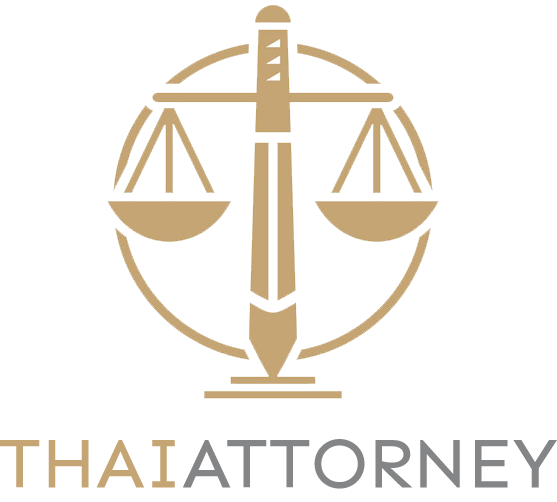A Notary Public plays a crucial role in authenticating, certifying, and verifying legal documents used in both domestic and international transactions. In Thailand, the concept of a Notary Public is not identical to that in many Western jurisdictions, but it serves a similar function—ensuring that documents are properly executed, genuine, and legally recognized. Whether for business, immigration, real estate, or legal purposes, the services of a Notary Public in Thailand are essential for ensuring trust, legality, and compliance with local and foreign laws.
Functions and Responsibilities of a Notary Public in Thailand
A Notary Public in Thailand performs several essential functions related to the verification and authentication of legal documents. These include:
-
Authenticating Signatures
-
Verifying the identity of individuals signing a document and witnessing their signatures to confirm authenticity.
-
This ensures that the signer voluntarily executes the document and that no forgery or impersonation has occurred.
-
-
Certifying Copies of Documents
-
Providing certified true copies of original documents such as passports, identification cards, business licenses, or educational certificates.
-
These certified copies are often required for visa applications, bank procedures, or foreign transactions.
-
-
Administering Oaths and Affirmations
-
Administering oaths or affirmations for affidavits, declarations, or sworn statements to confirm the truthfulness of their contents.
-
-
Acknowledging Agreements and Contracts
-
Verifying and witnessing the signing of contracts, powers of attorney, and other legal documents to ensure that parties understand and consent to the terms.
-
-
Verification of Identity and Capacity
-
Confirming that a person signing a document has proper identification and legal capacity to execute the document.
-
-
Certifying Translations
-
Attesting that a translation is accurate and corresponds faithfully to the original document, which is important for immigration and international filings.
-
-
Witnessing Corporate Documents
-
Certifying company-related documents such as board resolutions, shareholder agreements, and applications for registration with government authorities.
-
Each of these functions plays a critical role in guaranteeing that documents are valid, credible, and admissible in both Thai and foreign jurisdictions.
Legal Framework Governing Notarial Services in Thailand
The authority of a Notary Public in Thailand is derived from the Lawyers Act B.E. 2528 (1985) and the Regulations of the Lawyers Council on Notarial Services (2008). To provide notarial services, an attorney must:
-
Be a licensed lawyer under Thai law.
-
Complete a specialized notarial training course conducted by the Lawyers Council of Thailand.
-
Be officially certified and registered as a Notarial Services Attorney.
Only those who meet these criteria are legally allowed to perform notarial acts in Thailand. Unauthorized individuals offering notarial services can face disciplinary and criminal penalties.
Unlike in some countries, Thai Notarial Services Attorneys are not government-appointed officers. They act in their professional capacity as private legal practitioners authorized by the Lawyers Council. Despite this, their certifications are widely accepted domestically and recognized by foreign embassies and international authorities.
Importance of a Notary Public in Thailand
The services provided by a Notary Public are vital in both legal and practical contexts. Their importance can be understood through several key perspectives:
1. Ensuring Document Authenticity
One of the main purposes of a notarial act is to confirm that a document is genuine. In Thailand, where legal and business dealings often involve both Thai nationals and foreigners, document verification is essential to prevent fraud. A notarized document carries legal credibility, giving confidence to all parties involved.
2. Facilitating International Transactions
Many foreign governments, embassies, and companies require documents originating from Thailand to be notarized before they can be accepted abroad. Examples include:
-
Powers of attorney for use overseas
-
Commercial agreements involving foreign entities
-
Immigration and visa applications
-
Academic or employment certifications
Notarial certification assures foreign authorities that the document is authentic and executed properly under Thai law.
3. Supporting Legal and Business Procedures
Notarial services are indispensable in corporate and business operations. Thai and foreign companies often require notarized documents for:
-
Incorporating subsidiaries or representative offices abroad
-
Signing cross-border contracts
-
Certifying corporate documents (e.g., board resolutions, director appointments, and financial statements)
These certifications help streamline business processes and ensure compliance with both Thai and international legal standards.
4. Enhancing Legal Security
Notarization provides legal security by verifying the identity and consent of signatories. This reduces the risk of disputes over document validity, especially in cases involving contracts, affidavits, or declarations. Should a legal dispute arise, notarized documents carry significant evidentiary weight in Thai courts and arbitration proceedings.
5. Building Trust and Credibility
In Thailand’s commercial and legal environment—where reputation and reliability are highly valued—a notarized document signifies credibility. Whether for real estate transactions, immigration procedures, or business contracts, notarization assures all parties that the documents are legitimate and executed in good faith.
Common Situations Requiring Notarial Services in Thailand
Notarial services in Thailand are frequently required for a wide range of legal and business activities. Common examples include:
-
Visa and Immigration Applications
-
Notarization of personal documents (passports, birth certificates, financial statements) for visa applications to the U.S., U.K., or EU countries.
-
-
Power of Attorney (POA)
-
When an individual authorizes another person to act on their behalf, especially in property, banking, or court matters.
-
-
Real Estate Transactions
-
Certification of contracts, purchase agreements, and ownership documents for property sales or leases.
-
-
Corporate and Business Affairs
-
Notarization of incorporation documents, business licenses, and shareholder agreements for cross-border operations.
-
-
Financial and Banking Transactions
-
Verification of loan agreements, investment documents, or account-opening forms for banks.
-
-
Education and Employment
-
Certification of degrees, transcripts, or employment references for use in foreign jurisdictions.
-
Each notarized document provides legal assurance and facilitates smooth international and domestic transactions.
Recognition of Notarial Documents Abroad
Notarial documents executed in Thailand are recognized internationally once they undergo legalization or authentication. Depending on the destination country, the process may include:
-
Authentication by the Ministry of Foreign Affairs (MFA) of Thailand, confirming the notary’s signature.
-
Legalization by the relevant foreign embassy or consulate, verifying that the document meets that country’s legal requirements.
Thailand is not a signatory to the Hague Apostille Convention, meaning documents cannot be “apostilled” directly. Instead, this two-step process ensures global recognition of Thai notarized documents.
How to Find a Notary Public in Thailand
Notarial services are commonly available through law firms, legal offices, and independent attorneys certified by the Lawyers Council of Thailand. Major cities such as Bangkok, Chiang Mai, Pattaya, and Phuket have many English-speaking notarial service providers experienced in handling international documentation.
Clients should always verify that the notary is officially certified by the Lawyers Council, as only authorized attorneys can perform legally recognized notarial acts.
Conclusion
The role of a Notary Public in Thailand—or more accurately, a Notarial Services Attorney—is indispensable in the country’s legal and commercial landscape. These professionals bridge the gap between domestic and international legal systems by ensuring that documents are genuine, properly executed, and legally valid.
From authenticating signatures and verifying identities to certifying translations and corporate documents, the notary’s work underpins trust, transparency, and integrity in both local and cross-border transactions.
As Thailand continues to attract global business, investment, and migration, the importance of reliable notarial services grows even more vital. They not only safeguard legal rights and prevent fraud but also strengthen Thailand’s reputation as a country where legal formality and international cooperation thrive side by side.

